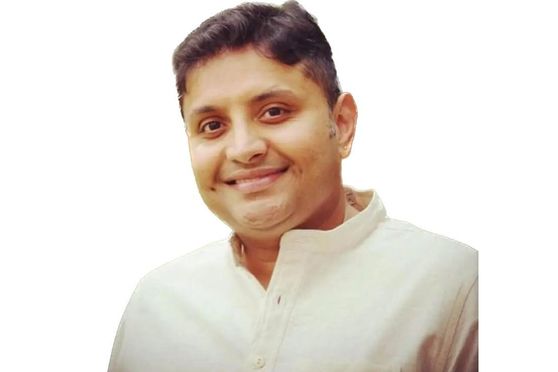National Education Day: Changing Course & Transforming Education, hear it from an expert


11 November is celebrated as National Education Day in India in honour of Maulana Abul Kalam Azad. He was the first education minister of independent India who played an instrumental role in laying the foundations of our country’s education system. This year’s theme for National Education Day is "Changing Course, Transforming Education." It is a call for reforming the education system in India to make it more adaptable to the changing times. But how far have we been successful? And what can we do to develop and improve the education system of our country? Read what Mr. Anindit Roy Chowdhury, Chief Programme Officer at Save the Children has to say on the subject.
1. Do you think there is a need to ensure that all educational streams get equal importance? If yes, then how could it be done?
Highlighting the need for critical thinking and holistic, inquiry-based, discovery-based, discussion-based, and analysis-based learning has been the need of our education system, and the National Education Policy 2020 has laid down transformative ideas to reshape it. The education system can now be tactically merged with any subject. The idea is to get children what they want and what they are interested in. They are not bound by the technical system that was prevalent at the time. For experiential and hands-on learning, STEM education plays a huge role. However, since no two children are the same, and they should not be compared, it is also important to tailor it to the needs of every child.
2. Proper teacher training not only ensures that teachers remain up to date over time, but it also develops the country's education system. What according to you are some of the crucial ways in which teachers can be trained to cope with the changing times?
Traditional modes of training have not worked. We must strengthen in-service programmes to meet the needs of teachers. Each training needs to be followed up with support at school level for on ground implementation of concepts and bring in the learnings from the training to actually benefit children. We need to encourage reflection in teachers and find the forums to do so which is severely lacking at this point. Teacher Forums must be made functional and the pandemic is a stark example of how forums worked to support children with learning continuity during the pandemic. Innovations by teachers need to be encouraged and incorporated in training content. At the same time, block and cluster officials need to extend their role from monitoring to mentoring for effective transaction of classroom teaching and learning for a more effective use of trainings. Technology has changed the mode of learning from how trainings were conducted to how teachers interact. There are a plethora of choices from the courses that teachers can undertake to the way they can interact. Along with other training, we also need to build their capacity to use Edtech so that they are able to use other readily available learning platforms.

3. Do you think instead of focusing on the evaluation on a three-hour exam, the current education system must focus on evaluation on the basis of classroom participation by a student along with extra-curricular activities? If yes, then how can it be implemented? If no then why not?
A three hour exam can never determine an individual’s innate abilities. No child should be labelled as good or bad based on his/her marks. At the most it tests a student’s memory. Further, if we intend to impart 21st century life skills, which include (as also mentioned in NEP 2020) progress of the Child in Inquiry Based Learning, Quiz, Role play, Group Work, Portfolios, etc. cognitive, affective, socio-emotional, and psychomotor domains, then the textbook approach to evaluation is redundant. Educationists, scientists and teachers themselves have all spoken against the current examination system. The Comprehensive and Continuous Evaluation (CCE) was aimed to bring in classroom participation and non-formal modes of assessment. However its implementation remained flawed. It increased teachers' workload when they were already swamped with teaching and non-teaching work. The NEP 2020 is yet to provide a proper guidance on assessment of children’s learning.
4. What are your views on whether everybody should have access to good quality education irrespective of their social or economical background?
There is no denying that every child, irrespective of their background, has a right to quality education and every possible support that they need must be extended to them in this regard. India already has policies which clearly spell this out. Education is a fundamental right and when not provided, it compromises the other rights entitled to a child. The Right to Education Act 2009 makes education not only free, but also compulsory for all children in the 6-14 age group. It was a landmark judgement that changed the face of education. However the Act must extend till 18 years of age. At the same time, girls, children in street situations, remote locations and from tribal backgrounds must be focused on for enhanced access and retention in schools and higher educational institutions. We also require dedicated budgetary allocation if we want our children to benefit from quality education and consider it to be the government's primary responsibility.
Learning is one of the surest paths towards having a successful and a flourishing life as it assists one in understanding life better and gaining knowledge to fulfil one's own ambitions. An educated person holds the ability to perceive issues and give worthy solutions and as our expert Anindit Roy Chowdhury says, once innovations by teachers are encouraged and incorporated in training content, our education system will also walk in the direction of transformation.